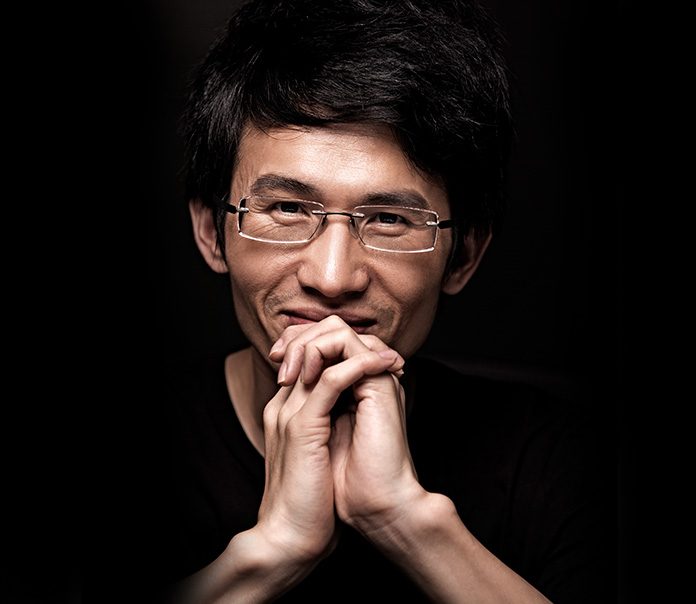
Michael Chen, CEO & Co-founder, iDreamSky Games
This interview was conducted with Michael Chen, CEO & Co-founder of iDreamsky Games, a Shenzhen based mobile game developer notably responsible for the development of popular titles ‘Temple Run’ & ‘Subway Surfers’. Here we reflect with Mr Chen on the progress China’s largest game developer has made since its founding in 2011.
DB: 您最喜欢的游戏是什么?What is your favourite game?
Michael: 应该是《纪念碑谷》。这个游戏非常考验脑力,让你真的需要动脑思考。我也推荐这个游戏给大家。
I would say my favourite game is Monument Valley. It’s very clever, really makes you think, so would definitely recommend it.

DB: 游戏行业不稳定,有风险,然而是什么激发了你从事游戏行业呢?What inspired you to develop mobile games for a living? Do you think it is a risky industry to enter?
Michael: 我反而不觉得游戏行业是大家所认为的那种有风险的行业,因为在2010年乐逗游戏创业的时候,我们本是想做阅读及视频类的应用,然后我发现这类应用的资源少,从而更难开发。而游戏是一种创意产品,只要有创意,就能创造出有口碑的游戏。
Actually, I don’t think operating in the gaming industry is as risky a venture as some think. In 2010, I wanted to do reading and video applications, but found these businesses more difficult, because of resource shortages. We needed the material of others for these businesses to thrive. Meanwhile, the game is a creative product, so as long as we have creativity, we have the main ingredient needed to produce a quality game.
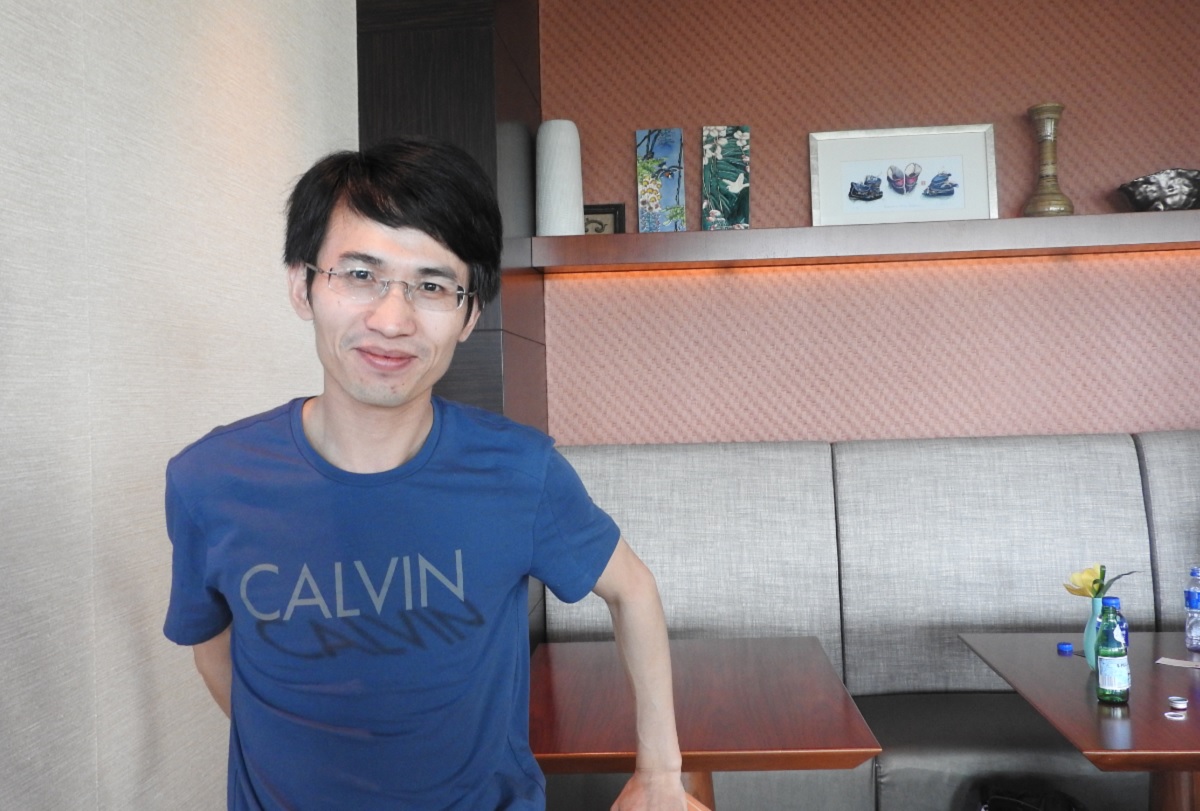
DB: 您能对比一下中国和海外游戏产业的区别吗?How would you describe the gaming industry in China compared to that in the west?
Michael: 我认为有几个大的区别。第一,从历史角度看,中国的游戏发展不同于美国或英国那种西方国家。比方说,欧美的游戏是从黑白机、像素游戏再发展到现在的3D游戏,这是一个有连续性的进化发展,而中国没有这种演变。第二方面是用户区别。中国没有连续的演变过程,中国不同年龄层次的人都是通过不同的终端设备和技术接触游戏的,而西方的游戏玩家则是与游戏行业的发展共同成长。这是我认为的两个大的区别。第三个区别是生态区别。中国的游戏行业的生态很复杂,其生态结构不像欧美那么简单,由谷歌,苹果,亚马逊等巨头垄断主要发行渠道。中国有很多细分渠道,如手机终端、应用宝等互联网线上渠道,还有APP等分销渠道,支付方式也各有不同。这些构成使得中国的游戏产业结构要比欧美的复杂得多
I think there are a few big differences. First, from a historical standpoint, China’s story differs from that of western countries like the US and the UK. For example, to the average citizen, games evolved from their black and white, pixelated origins to the modern, 3D, lifelike animated form you mostly see them in today. This happened in Europe and the United States, there is continuity with their evolution. But for China it did not. This is the first difference.
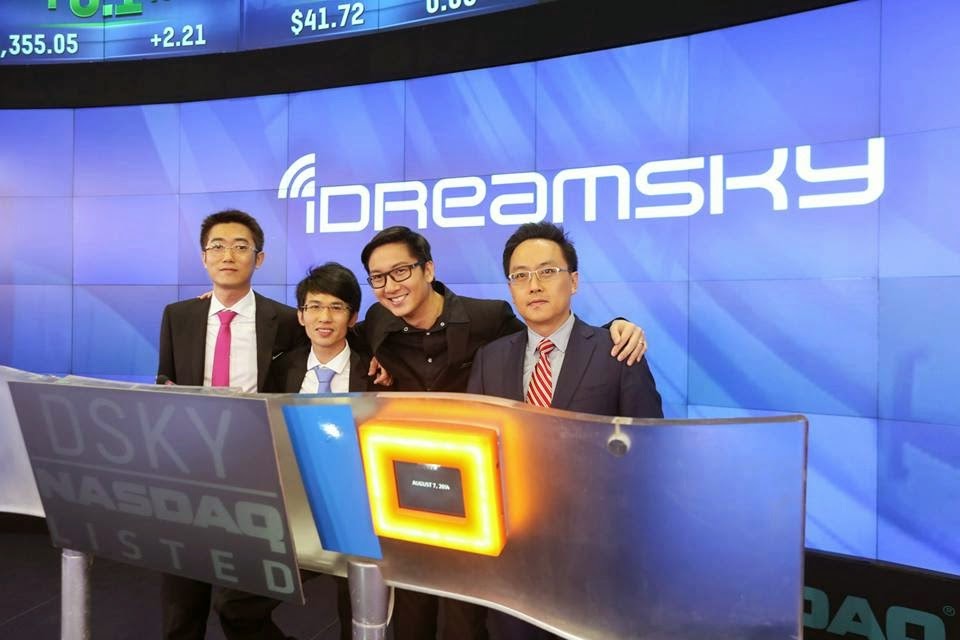
The second aspect is the difference between users, China has no continuity of evolution. So every age group of Chinese customers will have encountered the gaming industry via different equipment, different technology, depending on the time of exposure. Whereas western customers may have grown up with the industry in its development. This is what I think are the two big differences.
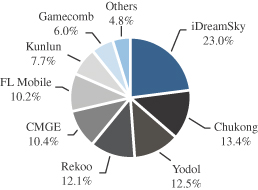
The third difference is ecological distinction. China’s gaming ecosystem is very complex, its ecological structure is not as simple as Europe and America, where giants like Google, Apple and Amazon dominate. China has a lot of subdivisions, there are many separate fields, each with their own leaders. The device of choice itself is also important. These include mobile phones and their respective software platforms, as well as differing distribution and payment methods. These structures all make China’s industrial structure more complex than Europe and the United States.
DB:您认为开发原创游戏和利用出名的IP来做一个游戏,哪种是更为成功的商业策略?Which do you think has been a more successful strategy, developing your own games or those based off already well-known IPs like Dragon Age?
Michael: 目前来说,运用现存的优质IP相对更为成功,但我们也尚在学习。乐逗游戏想要经历三个进化阶段。首先从乐逗制造到乐逗创造。大家都知道《神庙逃亡》和《地铁跑酷》,其实它们的中国版本都是乐逗游戏开发的,这种模式我们叫乐逗制造。同时,我们也在学习海外优秀开发商的制作经验。我们最终的目标是打造我们自己的主流IP,创造自己的游戏生态系统,自主创造出能适应全球不同市场的游戏。
I think the use of the world’s high-quality IPs has been more successful, but we are still learning. iDreamSky Games wants to go through three evolutionary stages. The first one involves the creation of homegrown games from our own studio.

We all know games like Temple Run and Subway Surfers, that was stage 1 for us. In fact, we now have Chinese versions of those games. We are constantly finding out about new excellent developers overseas, with production experience that we can always use. Then finally we aim to create our own major IPs. The eventual aim is for us to create an ecosystem of our own, one with both new and homemade games, which caters to all markets worldwide.
DB:收购对您来讲是一种比较好的发展策略吗?Recently your studio purchased Rumble Entertainment, another mobile game developer. Do you believe that this is your best strategy for growth?
Michael: 我觉得这是一种较为有效的商业方式之一,但我们现在更注重的是就现存游戏的合作开发,深度定制。和不同的商业伙伴合作开发,让我们拓展了视野,使我们的产品更多样化。游戏品种的多样化不仅让我们的顾客有更多的选择,同时也让我们涉猎更多领域,从而吸引更多新类型的顾客。
We think this is an effective way of doing business, but we are now more focused business-wise on co-operative development and in-depth customization of already existing game products to supplement our goals .

Co-operating with new and different business partners has allowed us to expand our horizons and diversify our product portfolio. Diversifying our range of offered games not only offers the gamers more to play, but also allows us to expand our experience for future and reach new types of customers.
DB:乐逗游戏接下来有什么新项目吗?Does iDreamsky Games have any new projects in development currently?
Michael: 就接下来的两个季度,我们已在研发一些新项目。其中最大的一个项目便是《梦幻花园》,这是款风靡全球的手游,乐逗游戏将负责其在国内安卓市场中的发行。
Over the next two quarters, we have quite a few new projects that we’re working on. The biggest one is called Gardenscapes, a global hit. iDreamSky Games will soon be publishing it on the Chinese Android market.
DB: Where can we find out more about iDreamSky Games?
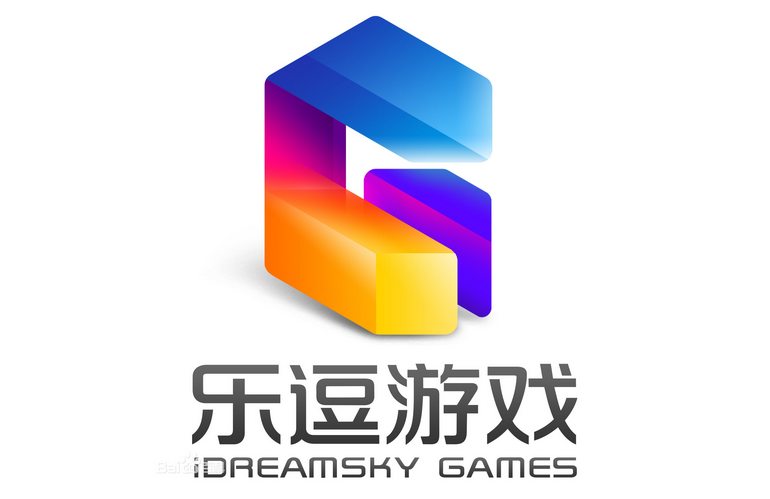
Find out more about iDreamSky Games and their ongoing projects at: www.idreamsky.com.
This article was co-published in conjunction with Technode, at: http://technode.com/2017/08/03/developing-games-from-china-qa-with-michael-chen-of-idreamsky-games/





